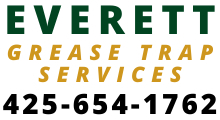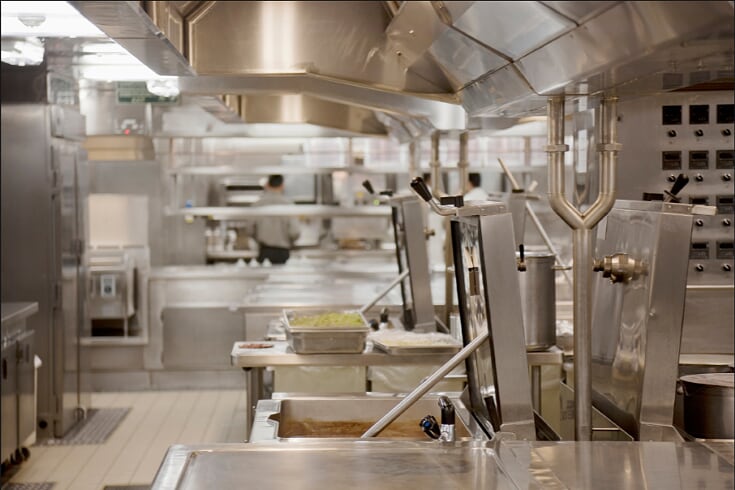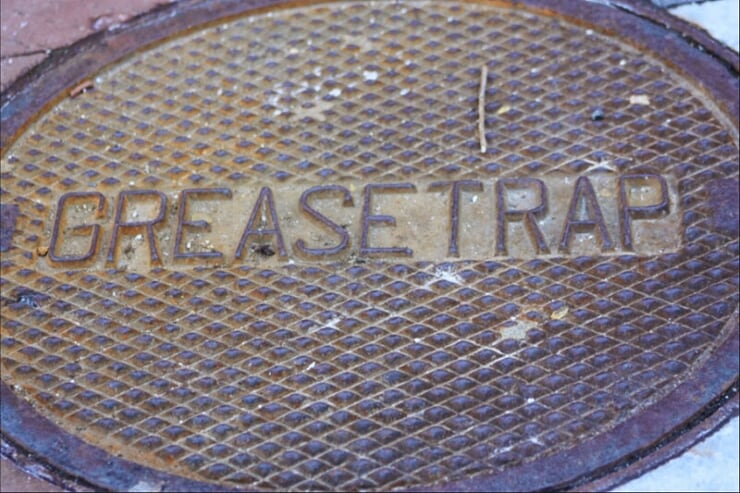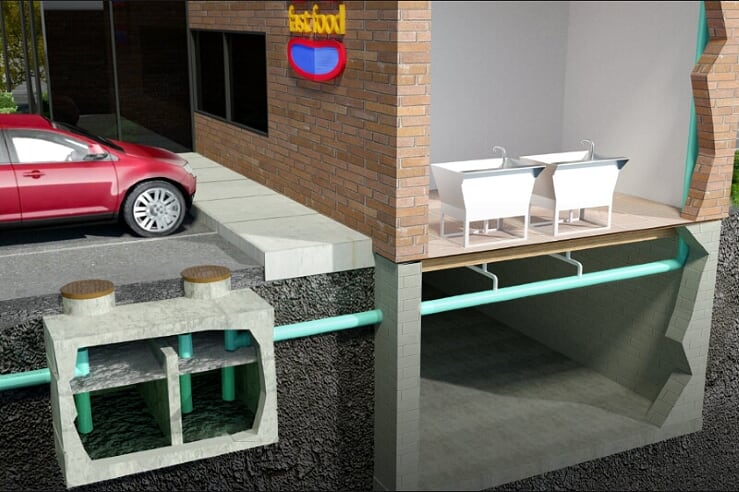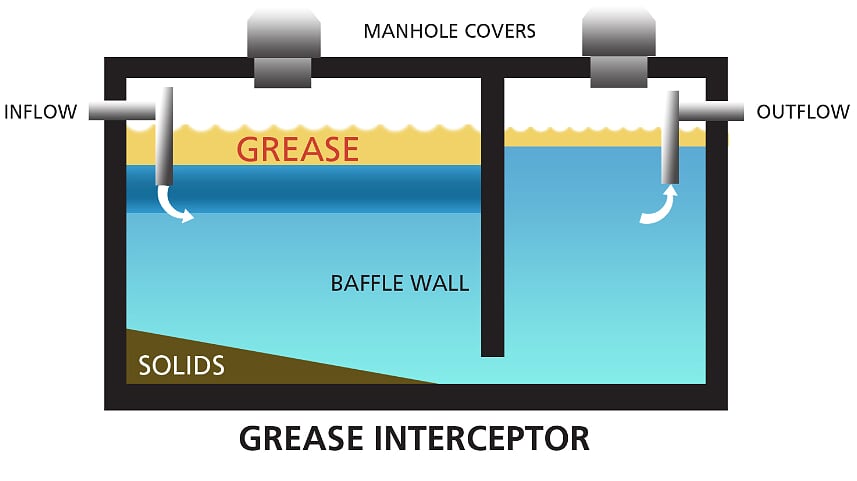GREASE INTERCEPTOR PUMPING IN EVERETT
Everett Grease Interceptor Pumping
Grease Interceptor Pumping Services in Everett
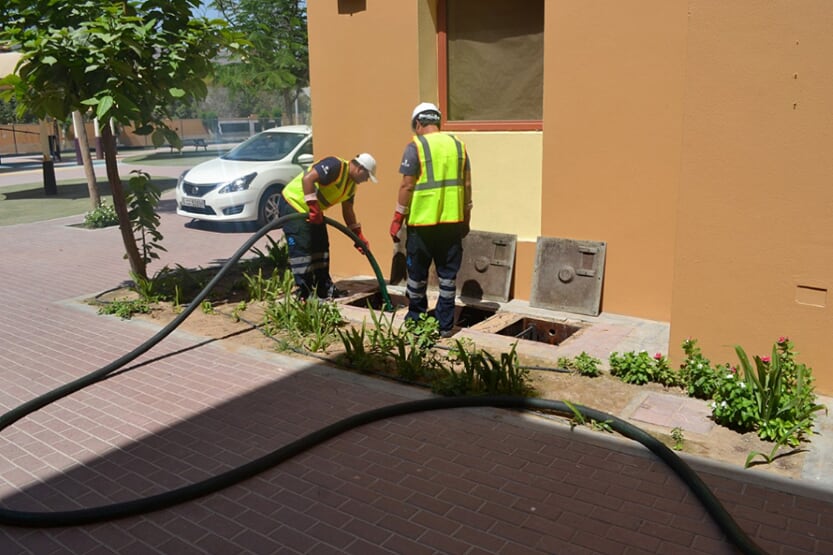
All restaurants and food processing facilities in Everett are required to install grease traps so that greasy materials will be separated from wastewater before passing into communal sewers. Restaurants and the food processing industry are the main sources of greasy waste and therefore it’s important that the grease traps used at these establishments are effective in removing grease from wastewater before it passes to the sewer system. Everett Grease Trap & Interceptor Services stays informed about all legal requirements related to grease traps to help you abide by the law!
Any establishment that introduces FOG into the sewer collection system in quantities large enough to cause blockages or hinder treatment at the sewer treatment facility is required to install a grease trap or interceptor. The law requires underground grease interceptors for high volume restaurants and large commercial establishments such as hotels and hospitals. Under-sink grease traps are required for small volume facilities, like take-out restaurants with limited menus.
Why you need regular scheduled servicing of your grease interceptor
At what intervals should I schedule maintenance and servicing of my grease interceptor to satisfy the requirements of the local health and safety regulations?
Grease trap and interceptor cleaning and maintenance schedules, for commercial establishments, depend on the facility type and the volume of processing required for the type of business. All underground grease interceptors should be cleaned, at a minimum, quarterly. Some establishments, especially high volume restaurants, will find it necessary to clean their traps much more frequently. If the establishment has to clean it too often, the owner should consider installing a larger trap.
Grease traps should be pumped when the grease and solids combined measure 30% of the depth of the tank. If a grease trap is not designed well, it may be necessary to consider a smaller percentage. When performed properly and at the appropriate frequency, grease interceptor and trap maintenance can greatly reduce the discharge of FOG into the wastewater collection system.
The 25% standard rule
A grease trap or interceptor should be regularly maintained to meet the 25% Rule – no more than 25%, by volume, of the trap or interceptor should accumulate of food and FOG. If more than 25% of food and FOG accumulate in the trap or interceptor, it’s more likely to not be working properly and discharging food and FOG into your building sewer and the public sewer system.
Each establishment should work out a specific cleaning schedule that is right for their business. Some establishments will need to clean their trap or interceptor more often than others. It’s important to remember that implementing best management practices in the kitchen, such as scraping your plates, pots, and pans, will reduce the amount of food and FOG that discharges into a trap or interceptor.
I have a very low capacity grease interceptor
Because of the smaller volume of the tank, a low capacity trap will reach the 25% capacity limit sooner than a larger grease interceptor, so it will need to have a cleaning schedule with shorter intervals. You may have to schedule it for service at a monthly or even weekly rate, if you’re preparing lots of greasy fried food. In the case of the smaller grease interceptors, a good number of commercial restaurants don’t require the larger varieties.
How often does a large underground interceptor need servicing?
While the cost of installing a large grease interceptor buried in the ground outside is a bit more expensive than one that can fit within your establishment, the cost is easily offset by the fact that it will require much less frequent servicing. Because of their massive capacity, the large grease interceptors won’t fit inside the establishment so they must be installed outdoors. In most instances, it may be located hundreds of feet away from the kitchen it serves. In many cases, the only possible location available outside is under the parking lot, or even the sidewalk. The plumbing configuration can be quite complicated so that the tank can be made accessible by the required pump truck.
My Everett grease interceptor is not as efficient as it was
Try our hydro jet cleaning service!
We’ve found this is usually a result of using substandard methods in the final cleaning of the tank and chambers, such as simply scraping and scrubbing. Our grease trap cleaning is done through a process called hydro-jetting where we use high-pressure water to remove the hardened grease to keep your working area safe, odorless, and clean. This is an efficient way of removing greasy deposits from the many corners, nooks and crannies of grease interceptor chambers. The superior method is the state of the art, high-tech hydro-jet technology. This method uses over 3500 PSI of water pressure to literally blast away all the sludge that has been deposited. You won’t believe the difference this will make with the increased efficiency of your grease interceptor! Call us for a free on-site consultation and free estimate at 425-654-1762.
Affordable & Reputable Grease Trap Services
